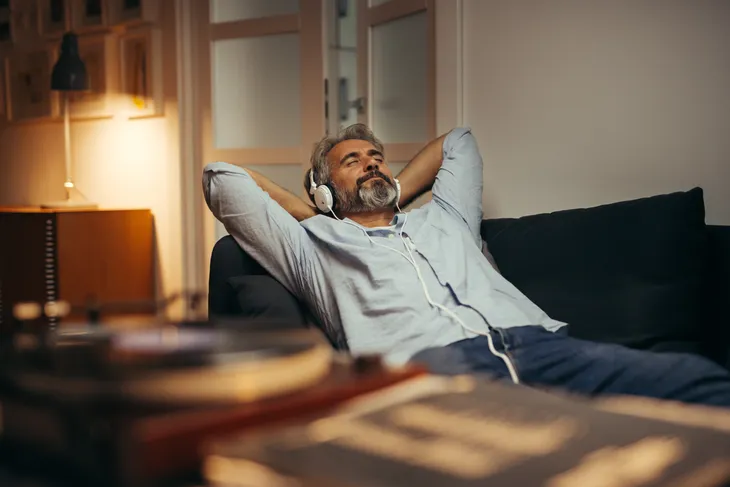Doomscrolling Is Literally Bad for Your Health. Here Are 4 Tips to Help You Stop

Doomscrolling can be a normal reaction to living through uncertain times. It’s natural to want to understand dramatic events unfolding around you and to seek out information when you’re afraid. But becoming absorbed in bad news for too long can be detrimental.
A newly published study has found that people with high levels of problematic news consumption are also more likely to have worse mental and physical health. So what can you do about it?
We spoke to Australians in the state of Victoria about their lengthy lockdown experiences and found how they managed to stop doomscrolling. Here are some tips to help you do the same.
Doomscrolling – unhelpful and harmful
“Doomscrolling” describes what happens when someone continues to consume negative news and information online, including on social media. There is increasing evidence that this kind of overconsumption of bad news may have negative impacts.
Research suggests doomscrolling during crises is unhelpful and even harmful. During the early COVID-19 pandemic, consuming a lot of news made people feel overwhelmed. One study found people who consumed more news about the pandemic were also more anxious about it.
Research into earlier crises, like 9/11 and the Boston Marathon bombings, also found that sustained exposure to news about catastrophes is linked to negative mental health outcomes.

Choosing to take control
During the peak of COVID-19 spread, many found themselves doomscrolling. There was lots of bad news and, for many people, lots more spare time. Several studies, including our own, have found that limiting news exposure helped people to cope.
Melbourne, the state capital of Victoria, experienced some of the longest-running lockdowns in the world. Wanting to know how Victorians were managing their news consumption during this time, we launched a survey and held interviews with people who limited news consumption for their own wellbeing.
We found that many people increased their news consumption when the lockdowns began. However, most of our participants gradually introduced strategies to curb their doomscrolling because they realised it was making them feel anxious or angry, and distracted from daily tasks.
Our research found these news-reduction strategies were highly beneficial. People reported feeling less stressed and found it easier to connect with others. Here are some of their strategies, which you might want to try.

Staying informed is still important
Crucially, none of these practices involve avoiding news entirely. Staying informed is important, especially in crisis situations where you need to know how to keep safe. Our research shows there are ways of balancing the need to stay informed with the need to protect your wellbeing.
So if your news consumption has become problematic, or you’re in a crisis situation where negative news can become overwhelming, these strategies can help you strike that balance. This is going to remain an important challenge as we continue to navigate an unstable world.

Latest Articles

Does Chicken Soup Really Help When You’re Sick? A Nutrition Specialist Explains What’s Behind the Beloved Comfort Food
Preparing a bowl of chicken soup for a loved one when they’re sick has been a common practice...

Aerobic and Strength Training Exercise Combined Can Be an Elixir for Better Brain Health in Your 80s and 90s, New Study Finds
People in the oldest stage of life who regularly engage in aerobic activities and strength training exercise...

How to Overcome Repetitive Negative Thinking Through Meditation
Do you ever find yourself caught in a cycle of negative thoughts? Maybe you ruminate on past mistakes, worry excessively about the...

Can Coffee or a Nap Make Up for Sleep Deprivation? A Psychologist Explains Why There’s No Substitute For Shut-Eye
There is no denying the importance of sleep. Everyone feels better after a good night of sleep, and lack of sleep can have profoundly negative...